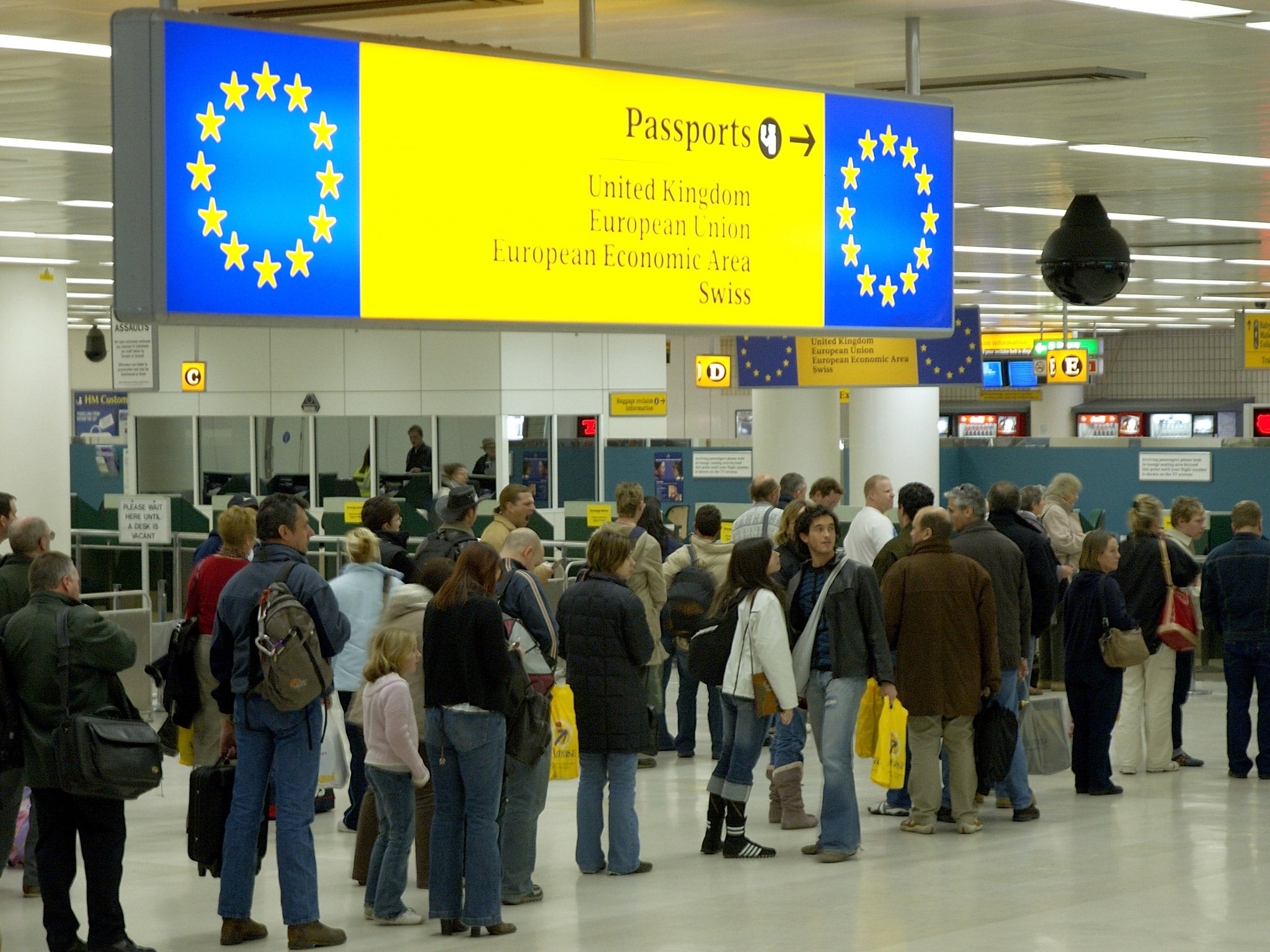Britain needs to continue to welcome hundreds of thousands of new migrant workers every year in order to keep the public finances stable over the next half century, the government’s official fiscal watchdog has said.
The Office for Budget Responsibility warned that if all immigration stopped from 2016 then growth would be lower – and the public debt burden could be expected to balloon to 174 per cent of GDP over the next 50 years.
Issuing its annual long-term analysis, the body tasked by the Government with checking the state of the country’s finances said that net immigration will be 140,000 per year. It expects migration at this rate will see the national debt increase to around 100 per cent of GDP by 2062-63, up from its present level of 75 per cent of GDP.
Contrary to the accusation that immigration puts more pressure on the country’s finances, the OBR added that if net immigration were to rise to 260,000 a year over the next five decades, the national debt would still be below 80 per cent in 50 years’ time.
“Overall migration has a positive impact on the sustainability of the public finances”, said the OBR. “Since migrants tend to be more concentrated in the working-age group relatively to the rest of the population immigration has a positive effect on the public sector’s debt dynamics”.
Despite these projections from the OBR, the Coalition has pledged to bring annual net immigration down to “the tens of thousands” by 2015. The most recent figures from the Office for National Statistics showed that there was net immigration of 153,000 to the UK in the year to September 2012. This was down from 242,000 in the year to September 2011.
The organisation also warned that the UK’s national debt burden could explode over the next half century unless the efficiency of the National Health Service improves drastically.
It said that an ageing population would impose considerable strain on the public purse over the coming decades by increasing demand for health spending. The OBR added that if productivity in the health sector did not rise in line with efficiency in the rest of the economy – and if more state resources had to be diverted to health as a result – the national debt could spiral to over 200 per cent of GDP by the 2060s.
The UK last had a debt burden above 200 per cent of GDP when it emerged from the Second World War. In the medium term the OBR expects the national debt to rise to 85.6 per cent of GDP 2016-17 before falling back until the 2030s.
Stripping out the uncertainty about health productivity, the OBR said that the state’s long-term structural fiscal position had actually improved since last year. The watchdog said that the improvement was a result of the extra fiscal consolidation that George Osborne has pencilled in to take place in the next Parliament.

Join our commenting forum
Join thought-provoking conversations, follow other Independent readers and see their replies
Comments